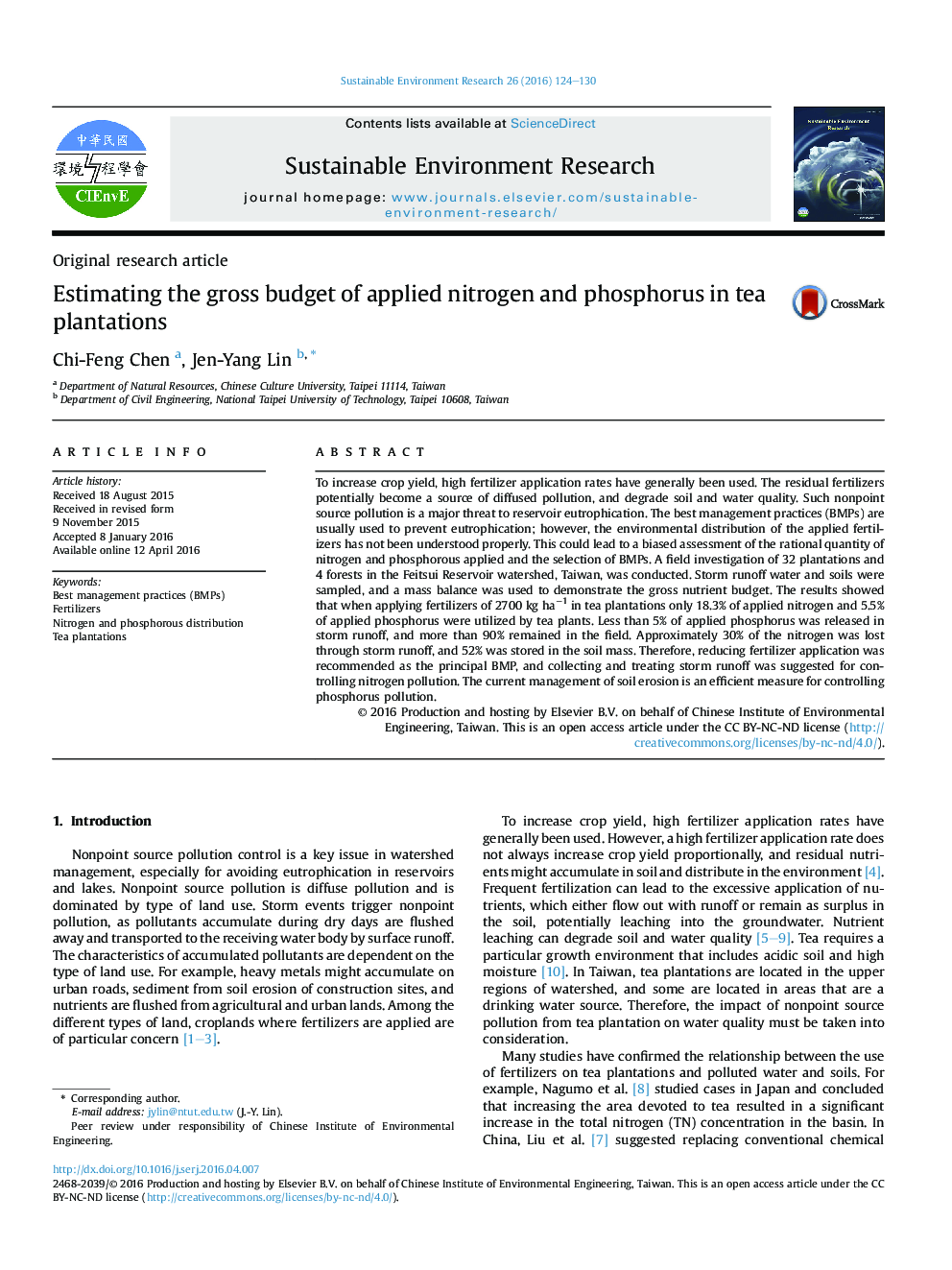| کد مقاله | کد نشریه | سال انتشار | مقاله انگلیسی | نسخه تمام متن |
|---|---|---|---|---|
| 4435383 | 1310556 | 2016 | 7 صفحه PDF | دانلود رایگان |
To increase crop yield, high fertilizer application rates have generally been used. The residual fertilizers potentially become a source of diffused pollution, and degrade soil and water quality. Such nonpoint source pollution is a major threat to reservoir eutrophication. The best management practices (BMPs) are usually used to prevent eutrophication; however, the environmental distribution of the applied fertilizers has not been understood properly. This could lead to a biased assessment of the rational quantity of nitrogen and phosphorous applied and the selection of BMPs. A field investigation of 32 plantations and 4 forests in the Feitsui Reservoir watershed, Taiwan, was conducted. Storm runoff water and soils were sampled, and a mass balance was used to demonstrate the gross nutrient budget. The results showed that when applying fertilizers of 2700 kg ha−1 in tea plantations only 18.3% of applied nitrogen and 5.5% of applied phosphorus were utilized by tea plants. Less than 5% of applied phosphorus was released in storm runoff, and more than 90% remained in the field. Approximately 30% of the nitrogen was lost through storm runoff, and 52% was stored in the soil mass. Therefore, reducing fertilizer application was recommended as the principal BMP, and collecting and treating storm runoff was suggested for controlling nitrogen pollution. The current management of soil erosion is an efficient measure for controlling phosphorus pollution.
Journal: Sustainable Environment Research - Volume 26, Issue 3, May 2016, Pages 124–130
